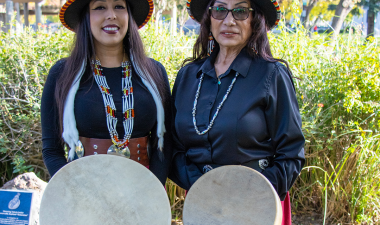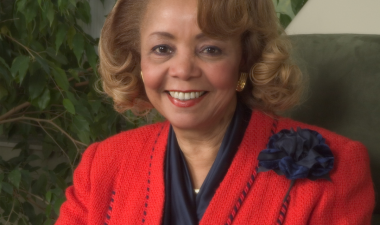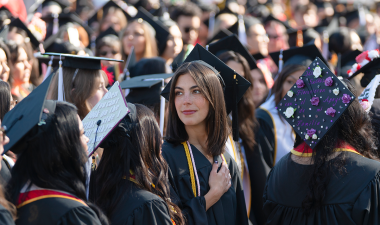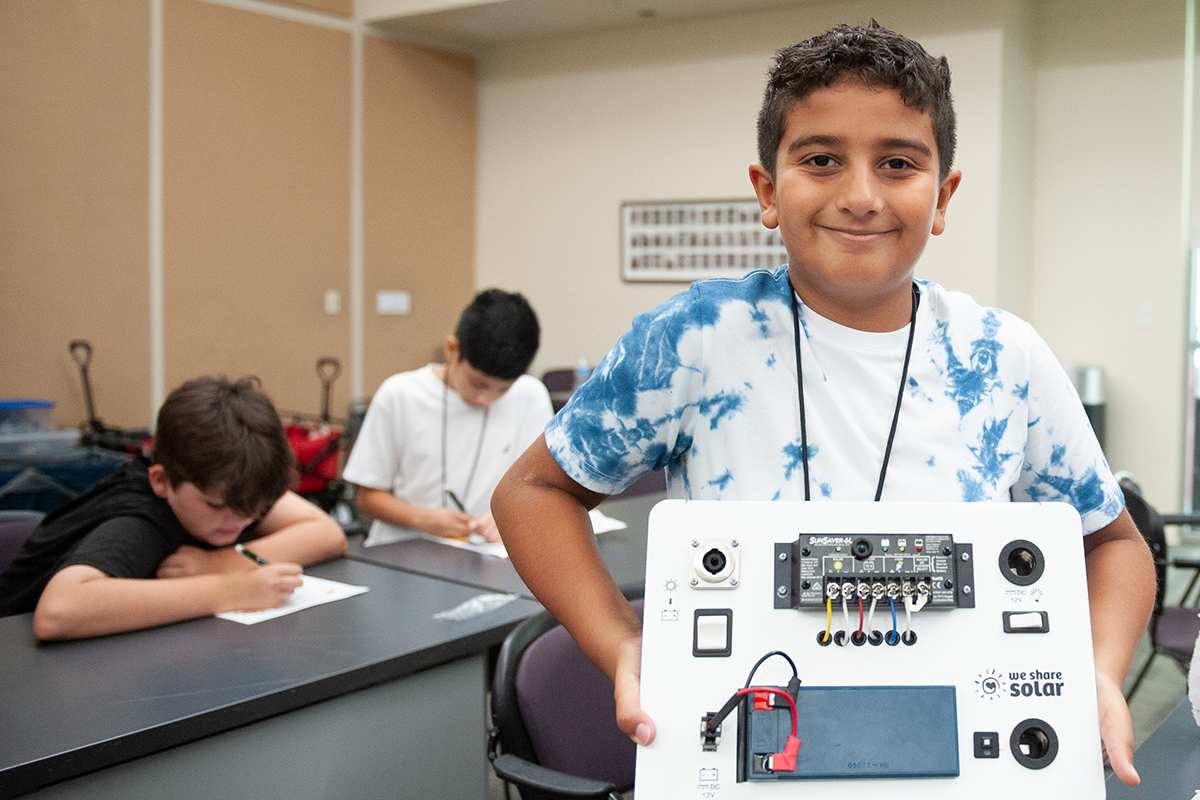
The Solar Suitcase Project is hosting its first summer camp for middle school students this week at Stanislaus State, led by Professor of Biological Science Mark Grobner, alongside a team of student volunteers who are introducing young minds to the wonders of solar power.
This marks Grobner’s ninth year overseeing the camp, which partners with the College of Education, Kinesiology and Social Work and the Office of Service Learning to coordinate the two-week program. The Solar Suitcase Project offers elementary and middle-school students a hands-on experience focused on harnessing solar energy.
The project engages participants in STEM fields and environmental leadership with support from Stan State students and partnerships with the University and We Share Solar, a nonprofit organization based in Berkeley.
Student volunteer Darryl Simonds, a senior majoring in liberal studies with a concentration in physics and physical sciences, is facilitating this year’s program. Having assisted with coding camps in previous years, Simonds now chooses the presentations, worksheets and activities for the campers as facilitator. He says working with the students attending the camp fuels his passion for teaching.
“I will be the one to teach the children who attend, ensuring information is presented at a level they can understand,” Simonds said. “I enjoy having children learn about the sciences. Watching them realize that science isn’t so difficult and seeing them ask questions that lead to answers makes me feel good. This camp gives me more experience in how to run a classroom, so I’ll be better prepared for my role as a teacher once I’ve completed my schooling.”
Simond’s passion for science and teaching drew him to the science camps, and he believes these kinds of educational activities are a necessity.
“They demonstrate how students can learn something and have fun at the same time,” Simonds said.
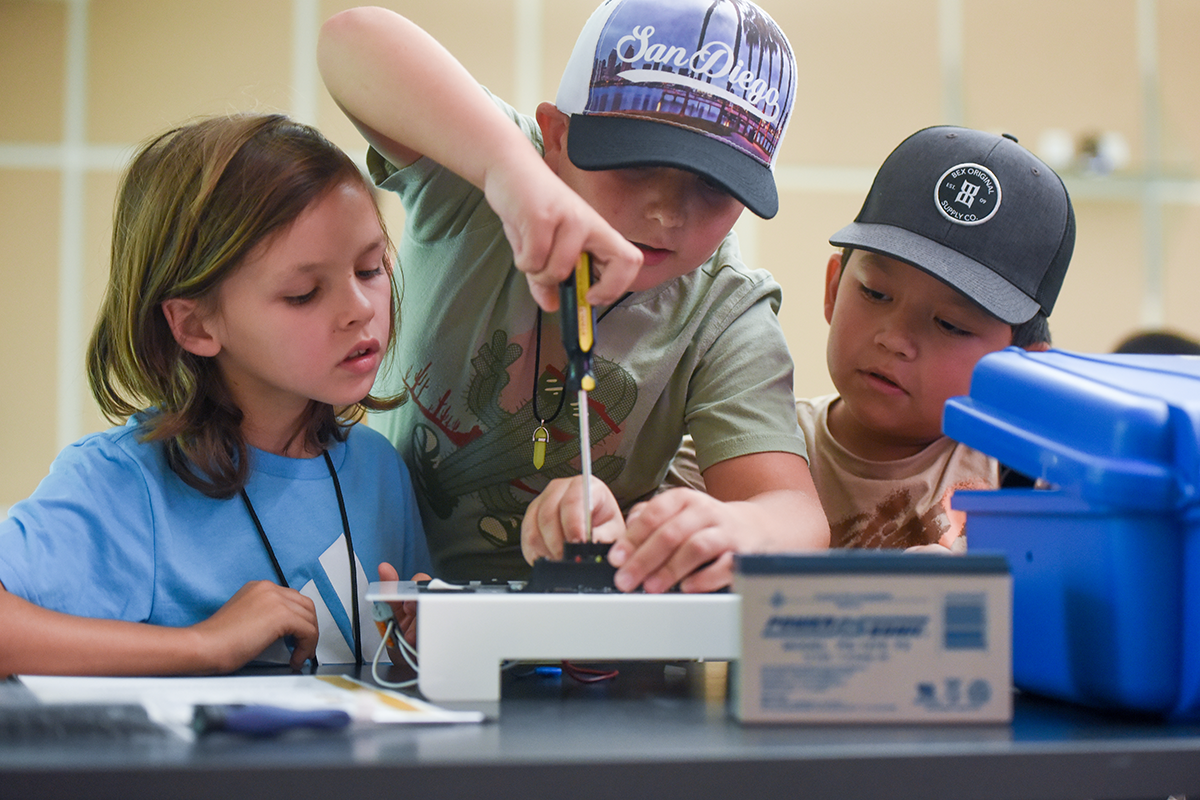
Grobner, who also serves as director for the University’s Science in the Community program, said the camp provides an excellent opportunity for Stan State students to gain valuable classroom experience before they begin their credential program.
The project teaches campers how to harness solar energy. Participants learn how to assemble a stand-alone 12-vol DC solar power system house in a small case. Equally important is the impact the completed suitcases have on lives and communities around the world.
Once completed, the suitcase is designed for sustained performance in challenging, remote environments. It’s capable of illuminating a standard-sized classroom, dormitory or office, and the cases can be expanded to provide more lighting and charging capabilities. Solar suitcases have been sent around the world and used in multiple schools and orphanages, including ones in Kenya and Uganda.
The success and global reach of the project have attracted the interest of prominent organizations, leading to fruitful partnerships.
“In 2015, we were approached by PG&E and their partners at We Share Solar about the Solar Suitcase project,” Grobner said. “We worked with Dutcher Middle School in their after-school program. Our students went there and talked to the kids about electricity and solar power. That was how the project started, and we continued it here on campus.”
Through these programs, Stanislaus State is playing a role in sparking a lifelong passion for learning in young students.
“Camps like this help to keep the curiosity about the world around us alive,” Simonds said.

